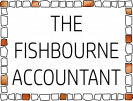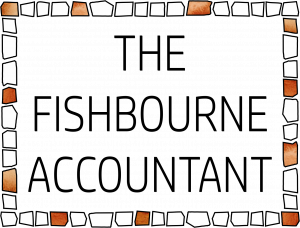With different rules for Limited Companies and sole traders, flat rates for simplified accounting, cash accounting, accruals accounting and restrictions on property businesses depending on the type it’s not surprising that business owners get confused about what counts for an expense and what doesn’t in their particular business.
This blog aims to give some general guidance to individuals carrying out a sole trade.
The overarching test of whether an expense can be claimed against tax is that it must be ‘wholly and exclusively incurred for the purpose of carrying out business. If your expense can meet that criteria then it is likely to be allowable.
Wholly and exclusively test
Wholly and exclusively means that the expense is for the trade only. If it is not only for trade but also for a personal reason because it is logical to kill 2 birds with one stone so to speak, then you will be disappointed to know that you will not be able to claim the expense. For example, if you have business contacts in Spain and decide to have a business meeting with them while you are on holiday in Spain, then the travel and hotel will not be allowable as a business expense. The cost of the meeting if any is a business expense categorised as entertainment but entertainment is unfortunately a business expense that is not tax deductible.
Working from home
Use of home as office expenses are often an area of confusion for tax payers. Under simplified expenses for the self employed you can use a flat rate based on the hours you work from home each month as follows:-
Working from home simplified cost
Hours of use per month Flat rate per month
| Hours of use per month | Flat rate per month |
|---|---|
| 25 – 50 | £10.00 |
| 51 – 100 | £18.00 |
| 101 and more | £26.00 |
Working from home actual costs
If you think that the trade portion of your domestic costs would exceed the flat rate allowance you can work out the proportion. For example if you use one room in your home 24 hours a day for your trade and you have 6 rooms in your home in total then you can claim 1/6 of your domestic bills such as heating, electricity, Council tax, rent and mortgage interest, internet and phone use. Of course if you use a room for business for 8 hours a day and then use it for personal living the rest of the time then the calculation is a bit more complicated ie 8/24 *1/6 * £x,xxx.
You can use other reasonable ways of calculating the actual cost but just remember to document your calculation (write it down or type it up and file it safely) and keep the evidence of the costs such
as your electricity bills. If your electricity use is heavy such as for those constantly using machinery in their business then you can keep a record of the electricity readings each time you use the machine and keep your electricity bills to prove the unit price and that the total bills are reasonably in excess of your claim to take into account personal domestic use.
Clothing
Clothing is another bone of contention and confusion for many business people. If you do want to claim for clothing then I recommend you purchase the clothing from a specialist shop as you won’t be able to claim ‘normal’ clothing against tax. Therefore if you are a builder, buy your protective footwear and clothing from somewhere like Screwfix or Toolstation. If you buy it from JB Sports for example it will be deemed ordinary clothing and disallowed by HMRC unless it bears your business logo.
According to HMRC allowable clothing includes:-
- Uniforms
- Protective clothing
- Costumes for actors or entertainers
Training Courses
You can claim allowable business expenses for training that helps you keep your already acquired knowledge and skills up to date.
You can’t claim expenses for training courses that enable you to start a new business or expand into new areas of business including anything related to your current business. That rule has particular potential area for confusion. I recommend that if you are doing something that may fall into that category you should take some advice on whether it counts as a business expense or not.
Evidence
You must keep proof for expenses claimed. This is for yourself so that you can remind yourself why you have made a claim and it’s also for HMRC in case they want to see them.
Types of proof may include:-
- Receipts for stock and other expenses
- Bank statements including paypal statements and credit card statements (You need the bonafide PDF or paper bank statements, not csv downloads and don’t just depend on your bank feed if you are using software as these can be edited).
- Sales invoices, till rolls, website reports of sales, Shopify statements
- Use of home as office or workshop calculations as described above
I like to keep my blogs upbeat and this one whilst letting you know your restrictions will help you to stay compliant. Although HMRC are under resourced they are also under pressure to bring in more tax since the big CV19 spend.
Ways to not get investigated may include:-
- Using a regulated accountant with a good reputation
- Not showing profit and loss figures out of kilter with your normal industry
- Not making significant tax reclaims.
I obviously wouldn’t recommend that you don’t claim tax genuinely owed to you – just make sure you can prove it!


